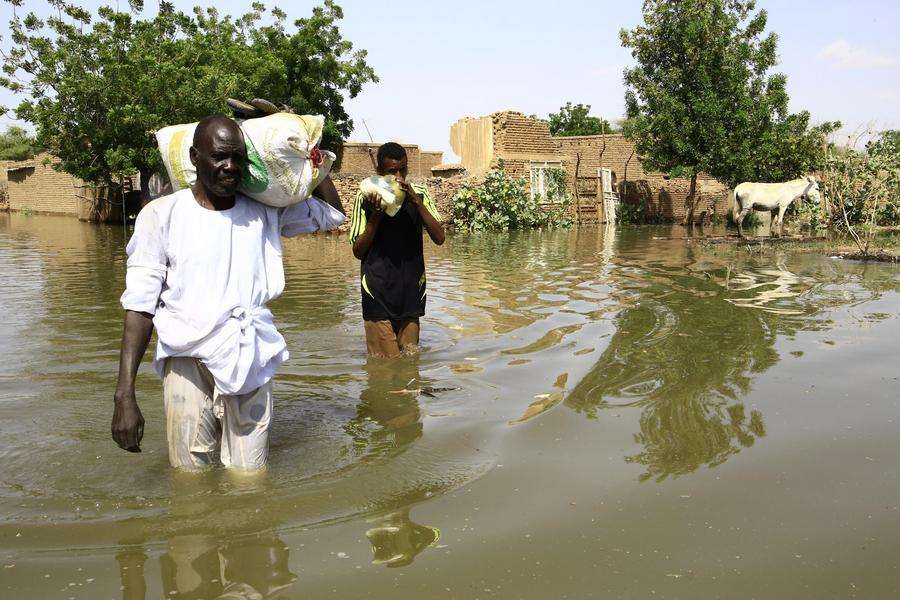Sudan’s Nile state flooded, causing over 30 deaths

Sudan‘s Nile state’s devastating floods have killed more than 30 people and left many others stranded.
According to Africa News plus agencies on October 7th, authorities stated that flooding in the Blue and White Nile rivers has destroyed hundreds of homes and exacerbated the country’s humanitarian situation.
In the River Nile state, where the flooding occurred, residents believe that this could have been prevented. The lack of equipment and resources has caused significant damage, and in low-lying areas, rescue efforts have become particularly challenging due to the heavy rainfall.
“Heavy rains fell, but planning errors by the Abu Hamad locality, in River Nile State, are the cause of this disaster.” Says Abdul Sami Hussien.
It appears that Sudan’s Ministry of Agriculture predicted six states this year that were at high risk for flooding, which include the Gezira state and Khartoum.
Countries Sudan and Egypt both blame Ethiopia for the cause of these floods. With Egypt’s back-and-forth negotiations with Ethiopia since the construction started in 2011 to create the Nile water distribution, Egypt is in dispute with Ethiopia’s intentions.
Ethiopia is spending $5 billion on an infrastructure project, which recently opened a few weeks ago as part of its grand Ethiopian Renaissance Dam (GERD). Not long after opening, Sudan, a neighbouring country to Ethiopia, began receiving flooding alerts starting from September 27th.

The GERD is in the Blue Nile near the country’s border with Sudan. And whilst the Dam is supposed to signify great potential for Ethiopia and has been helpful for farmers during the agricultural season, that season is coming to an end, and it is becoming detrimental for Sudan.
Earlier this year, on July 4th, a statement was released by Egypt’s Ministry of Water Resources and Irrigation, stating that “Egypt firmly rejects Ethiopia’s continued policy of imposing a fait accompli through unilateral actions concerning the Nile River, which is an international shared watercourse.”
The Ministry then went on to add further that “we believe in shared progress, shared energy, and shared water. Prosperity for one should mean prosperity for all.”
Ethiopia appears not to align with the concerns expressed by Egypt and Sudan regarding the complications it has caused for their countries, and feels that it is there to help, not cause friction.
In an address to lawmakers on July 3rd, Abiy Ahmed, Prime Minister of Ethiopia, tried to alleviate the concerns by stating that Ethiopia “remains committed to ensuring that our growth does not come at the expense of our Egyptian and Sudanese brothers and sisters.”
Africa News plus agencies, Maghrebi.org
Want to chase the pulse of North Africa?
Subscribe to receive our FREE weekly PDF magazine










